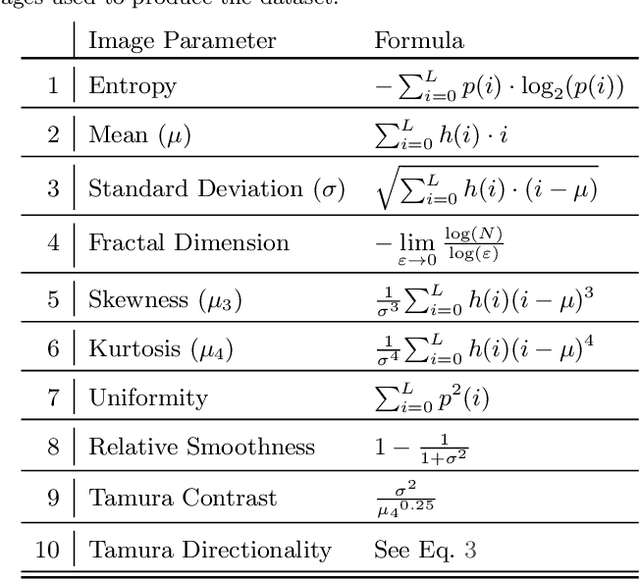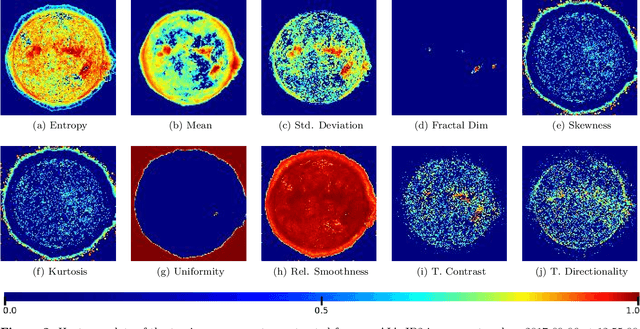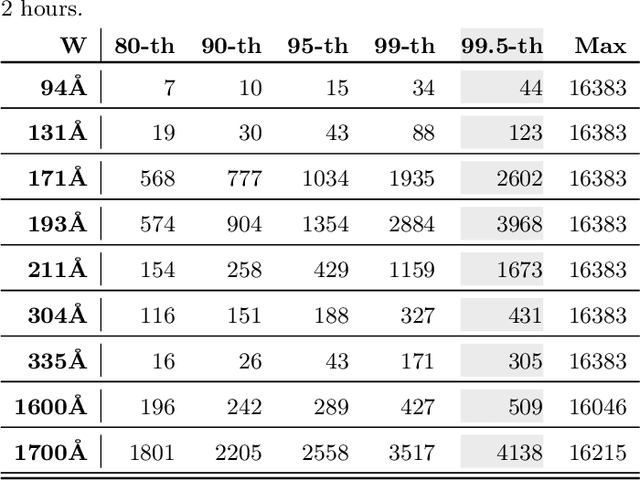A Curated Image Parameter Dataset from Solar Dynamics Observatory Mission
Paper and Code
Jun 03, 2019



We provide a large image parameter dataset extracted from the Solar Dynamics Observatory (SDO) mission's AIA instrument, for the period of January 2011 through the current date, with the cadence of six minutes, for nine wavelength channels. The volume of the dataset for each year is just short of 1 TiB. Towards achieving better results in the region classification of active regions and coronal holes, we improve upon the performance of a set of ten image parameters, through an in depth evaluation of various assumptions that are necessary for calculation of these image parameters. Then, where possible, a method for finding an appropriate settings for the parameter calculations was devised, as well as a validation task to show our improved results. In addition, we include comparisons of JP2 and FITS image formats using supervised classification models, by tuning the parameters specific to the format of the images from which they are extracted, and specific to each wavelength. The results of these comparisons show that utilizing JP2 images, which are significantly smaller files, is not detrimental to the region classification task that these parameters were originally intended for. Finally, we compute the tuned parameters on the AIA images and provide a public API (http://dmlab.cs.gsu.edu/dmlabapi) to access the dataset. This dataset can be used in a range of studies on AIA images, such as content-based image retrieval or tracking of solar events, where dimensionality reduction on the images is necessary for feasibility of the tasks.
 Add to Chrome
Add to Chrome Add to Firefox
Add to Firefox Add to Edge
Add to Edge